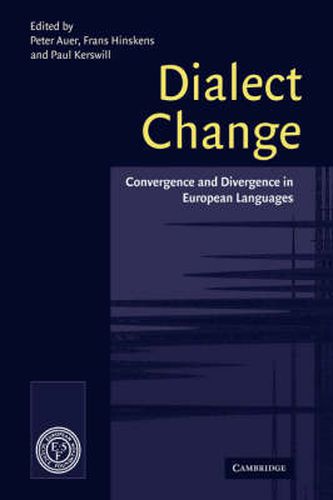Readings Newsletter
Become a Readings Member to make your shopping experience even easier.
Sign in or sign up for free!
You’re not far away from qualifying for FREE standard shipping within Australia
You’ve qualified for FREE standard shipping within Australia
The cart is loading…






Dialects are constantly changing, and due to increased mobility in recent years, European dialects have ‘levelled’, making it difficult to distinguish a native of Reading from a native of London, or a native of Bonn from a native of Cologne. This comprehensive study brings together a team of leading scholars to explore all aspects of recent dialect change, in particular dialect convergence and divergence. Drawing on examples from a wide range of European countries - as well as areas where European languages have been transplanted - they examine a range of issues relating to dialect contact and isolation, and show how sociolinguistic conditions differ hugely between and within European countries. Each specially-commissioned chapter is based on original research, giving an overview of current work on that particular area and presenting case studies to illustrate the issues discussed. Dialect Change will be welcomed by all those interested in sociolinguistics, dialectology, and European languages.
$9.00 standard shipping within Australia
FREE standard shipping within Australia for orders over $100.00
Express & International shipping calculated at checkout
Dialects are constantly changing, and due to increased mobility in recent years, European dialects have ‘levelled’, making it difficult to distinguish a native of Reading from a native of London, or a native of Bonn from a native of Cologne. This comprehensive study brings together a team of leading scholars to explore all aspects of recent dialect change, in particular dialect convergence and divergence. Drawing on examples from a wide range of European countries - as well as areas where European languages have been transplanted - they examine a range of issues relating to dialect contact and isolation, and show how sociolinguistic conditions differ hugely between and within European countries. Each specially-commissioned chapter is based on original research, giving an overview of current work on that particular area and presenting case studies to illustrate the issues discussed. Dialect Change will be welcomed by all those interested in sociolinguistics, dialectology, and European languages.